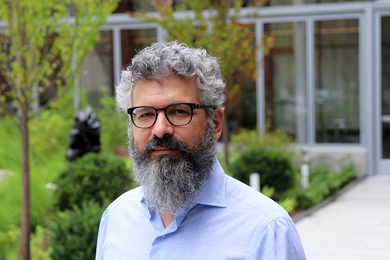MIT's Institute-wide Planning Task Force, created to explore ways to maximize efficiency and help reduce Institute expenses, has gathered more than 1,000 ideas from members of the MIT community. The group is now evaluating the ideas and thoughts generated during group discussions and is working toward its preliminary recommendations, due in June.
Members of the MIT community can read the ideas in the online "Idea Bank" at http://ideabank-dev.mit.edu, which features new charts summarizing the categories of submissions. Many of the ideas fall into the broad themes of automation, simplification and greater sharing of resources.
Among the most popular ideas are reducing paper usage, which accounted for 46 percent of all submissions related to administrative processes, and improving efficiency of heating and cooling, which made up 26 percent of suggestions related to space usage.
"This is an opportunity for the entire MIT community to build a better, more efficient MIT," said Vice President for Finance Israel Ruiz, who is helping to coordinate the Task Force. "In that context, we will need to work together in the best MIT spirit in order to provide the simplest, fewest and most flexible solutions that meet our unique needs."
Vice Chancellor and Dean for Graduate Education Steven R. Lerman and Associate Provost Martin A. Schmidt are also coordinating the Task Force, which was set up in response to the decline in revenues as a result of the global economic crisis. The committee is charged with helping to reduce MIT's expenses by $50 million to $100 million over the next two to three years, starting with the 2011 fiscal year. These reductions will follow an initial $50 million expense reduction already underway for FY 2010.
Several efficiency-enhancing projects are now in the works, including streamlining MIT's business travel processes. A pilot phase to test the plan, which will provide credit cards for travel and establish a new electronic expense reporting system, is planned to launch as early as July.
In addition, the Office of the Vice President for Finance and Information Services & Technology are collaborating to automate the processing of 50,000 requests for payment per year. The new process is targeted for adoption this fall.
The Task Force has categorized ideas from the community into nine areas, corresponding to the working groups within the Task Force: Administrative Processes, Education, Human Resources and Benefits, Information Technology, Procurement, Research Enhancement, Revenue Enhancement, Space and Student Life.
The working groups have begun assessing which high-level strategies would be most feasible to adopt, and estimating the degree of savings that would result. They are also identifying incremental improvements and changes that, taken together, could also offer significant savings for the Institute.
"We are considering ways in which the Institute can take maximal advantage of shared research facilities, and are also looking at the different teaching models, as well as looking at opportunities to automate and simplify existing processes -- for example, electronic invoicing, electronic pay stubs, graduate student admissions, and faculty and staff searches," said Ruiz.
Although the Idea Bank will continue to take new suggestions and comments, as the Task Force transitions from idea-generation to drafting proposals, its members are no longer receiving automatic weekly reports on submissions.
A version of this article appeared in MIT Tech Talk on May 6, 2009 (download PDF).





